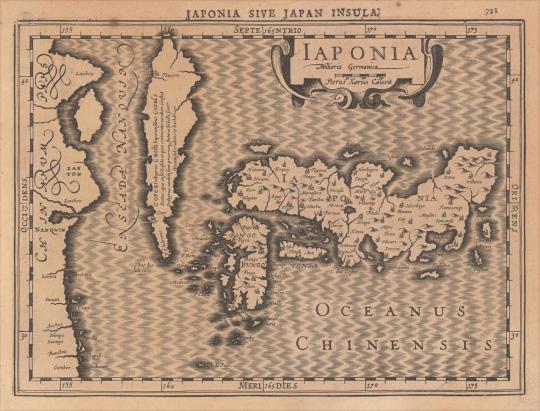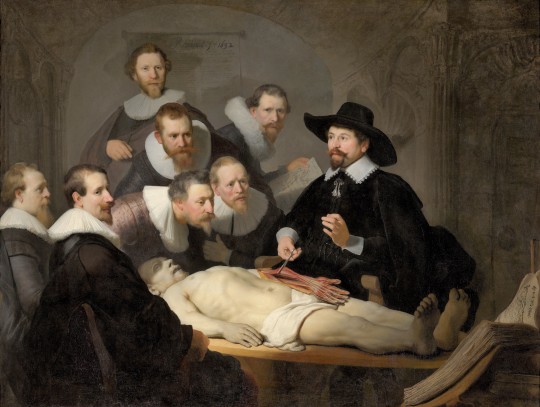#1632
Text
Currently rereading Eric Flint's 1632 and reflecting on just how influential Flint was to me and my approach to both praxis and politics as a teenager. I found Flint when I was about thirteen or fourteen, around the time I found Pratchett I think, and he's left an equally wide thumbprint on my soul. Isn't that the most wonderful thing about stories, that people you've never met can help shape our adult selves? Mother of Demons I often recommend for its SFF worldbuilding--Flint built a species with at least four genders, only some of which are reproductive, and associated "normal" sexual orientations, and then proceeded to write in a textually intersex character and queer the hell out of it.
1632, though, is the one where a little West Virginia town in 2000 gets picked up and dropped in the middle of Thuringia, Germany in the eponymous year--right in the middle of the Thirty Years War. The local United Mine Workers of America chapter plays a major role, particularly its head.
As I write this I'm listening to the scene where the little town of Grantville, having admitted after a few days that they are probably not ever going home, is crowded into the high school gymnasium listening to the mayor lay that reality out and suggesting an interim council to help the town set out a sort of constitutional convention so they can work out what on earth they're going to do moving forward--especially since there's a bunch of displaced refugees collecting in the forests nearby. Sensible of them, really; the Americans murdered the shit out of the local soldiers that displaced them, on account of how the shaken mine workers that went out to figure out WTF happened not being super down with suddenly running into a bunch of fuckheads raping the locals and torturing people to find out where their valuables might be. After that, said Americans proceeded to retreat into the town boundaries and gibber quietly to themselves. I would go lurk in their woods, too.
Anyway, the mayor sets up this proposal, everyone agrees, and a CEO who was visiting for his son's wedding at the time steps forward and says: look. I know how to lead, and I'm probably the most qualified person here. I lead a major industry corporation effectively and I did that after my time as a Navy officer. I put myself forward because I'm qualified. Now, we're going to need to circle the wagons to get through the winter, tighten our belts, but we can get through this. We can't support all these refugees, though; we'll have to seal the border so they can't bring disease--they're a drain on our resources we can't afford--
and the UMWA guy, he gets really mad listening to this. There's this Sephardic refugee woman he's real taken with who got swept up in the town first thing, and she's sitting in and listening; he's thinking about throwing her out, thinking about how much she knows about the place they're found in, and he's furious. But he gets a good grip on his anger and he marches up and he says, look. This dude has been here two days and he's already talking about downsizing?! You're going to listen to this CEO talking about cuts, cuts, cuts? Nah. Trying to circle the wagons is probably impossible, it's stupid, and if you think my men and I are going to enforce that, you can fuck off. That proposal is inside out and bass ackwards. We've got about a six mile diameter of Grantville here; how much food do YOU think we're going to grow? How about the soldiers wandering around, do you think we're going to be able to fight armies off on our lonesome? Look at the few refugees we already have in the room, they'll tell you how those armies will treat you! We could do it for a while, the amount of gun nuts here, but so what? We don't have enough people to shoot them! Not if we're going to do anything else to keep us going! We have about six months of stockpiled coal to keep going, and without another source or getting the coal mines working, we're screwed. We have technical strength but we don't have the supplies or resources we would need to maintain it. Those refugees? They're resources. We need people to do the work we will need to keep ourselves. The hell with downsizing; let's grow outwards! Bring people in, give them safety, see what they can bring to the table once they've had a moment! He invokes: send us your tired, your poor!, and the CEO yells in frustration: this isn't America! so he yells back "it will be!"
And of course everyone cheers. I love Flint for many reasons but he is unapologetic about affection for the America of ideals--ideals, he freely admits, that are often honored in the breach rather than the observance, ideals that are messy and flawed, but nevertheless ideals that can work to inspire us to become the best version of ourselves. For Flint, history is as valuable as a source of stories to inspire ourselves as it is a repository of knowledge, and on this I tend to agree with him. We must learn from our moments of shame but equally we must learn from moments that show us how to be our best selves.
It's been twenty three years and the text is now an interesting historical document in its own right, hitting points and rhythms in beats that are sometimes out of place today. It's not perfect. But the novel contains a commitment to joy and to emphasizing the leaps of faith and understanding that regular, everyday people make every day to try and support each other that I routinely try to match in my writing.
Anyway, one of the strengths of the novel, I think, is its gender politics: it's a very ensemble kind of novel, lots of characters, and it's preoccupied with positive masculinity in a lot of ways. There's a lot of these hyper masculine characters--Mike Stearns perhaps more than anyone else--and--and...
... And Flint's characterization of Stearns, as he sketches out who the man is--his pivotal American leader, ex boxer, working class organizer, big man.... well, it lands equally on "he is delighted and astonished to find a local woman who quickly assesses how the cushion of air in tires works," and "he considers who to set up a Jewish refugee in the middle of Germany up with and he thinks to ask the Jewish family he grew up with to host her and her ill father because he thinks she'll be most comfortable there", and "he views people as potential assets rather than potential drains." A younger man asks him for advice on whether to pursue a professional sports career because of the boxing and he says no, you're in the worst place of not being quite good enough and you'll blow out your knees without accomplishing safety. He frames that interaction such that he allows his own experiences to make him vulnerable and invite the younger man to understand when a struggle have worth it.
It's actually a really deft portrayal of intense masculinity that also makes a virtue of a bunch of traits more usually associated with women: empathy, relational sensitivity, the ability to listen. As a blueprint for what a positive masculinity can look like, vs the toxic kind, it's very well done. I think sometimes when we look at gender roles in terms of virtues, and when masculinity is defined in terms of opposition to femininity, people get lost by arguing that virtues assigned to one gender are somehow antithetical to another gender. In fact that's never been the case: virtues are wholly neutral and can appear in any gender. What the gender does is inflect the ways we expect that virtue to appear in terms of individuals' actions within their society.
Gender isn't purely an individual trait, basically; it's a product of our collective associations. Two characters with different genders can display the same virtues and strengths, but we imagine them expressed in different ways according to our cultural expectations around gender. And I just think that's neat.
946 notes
·
View notes
Text

Daniel Rabel: Première entrée des fantômes, quatre figures (First entry of the ghosts, four figures) 1632.
557 notes
·
View notes
Photo

A map of East Asia made in 1632 depicting Korea as an island
114 notes
·
View notes
Text

Christ Crucified
Diego Velazquez
oil on canvas, 1632
304 notes
·
View notes
Text

57 notes
·
View notes
Text

Rembrandt (Rembrandt Harmenszoon van Rijn) - The Anatomy Lesson of Dr. Nicolaes Tulp, 1632, Mauritshuis, The Hague, Netherlands
#art#arte#classical paintings#classical art#painting#painter#dutch art#dutch painter#rembrandt#rembrant van rijn#the anatomy lesson of dr. nicolaes tulp#1632#1600s#mauritshuis#the hague#netherlands#artist#dutch artist
16 notes
·
View notes
Photo

A Sybil, Diego Velazquez, 1632
96 notes
·
View notes
Text

Philosopher in Meditation (Rembrandt, 1632)
43 notes
·
View notes
Text

Family Crest for WARNER...
1 note
·
View note
Text
1632 but instead of a West Virginia coal-mining town from 2000 being sent to Germany during the 30 Years' War it's The Will To Battle.
It's Romanova on September 6, 2454, and J.E.D.D. Mason and the Censor open the doors to the Temple of Janus in Romanova, sealed with stone garlands these last two hundred years, and at that moment Romanova is swapped from the west coast of Sardinia to a cozy spot on the Egyptian shore just west of Gaza, on 8 October 2023, with the initial Hamas offensive already completed, and Israel's response in full swing.
I held my breath. Leaves stirred in the dust as the wind blew through the open temple. I let one breath out and took another as the seconds of hush ticked by. The world hadn't ended yet. Mycroft looked at me. We were all ready to react, not to act. Whispers started, and craning of necks. Somehow it didn't occur to me until then to wonder what was in the temple. The ancient one would've had a statue of Janus with their double face looking both ways. I couldn't see from where I stood, but Su-Hyeon was clearly peering in at something. Except now there was a murmur, and a voice which pierced the murmur.
"Nineveh?" It was a cutting voice, worried.
A second voice: "Luna? Luna City, can you hear me? Hello?"
Third: "Atlantis? Come in, Atlantis?"
"Alexandria? What's going on? Alexandria? Exaudi me! Alexandria!"
There was a rumble on the horizon, unlike thunder.
5 notes
·
View notes
Text
While my last post on Eric Flint's 1632 has been making the rounds, I have been reading the sequels: first the short story anthology Ring of Fire, and then the more direct sequel 1633.
When we left our friends in the first book, our primary surviving antagonists were a) John Simpson, ex-CEO and anti-German conservative asshole, and b) General Albrecht von Wallenstein, last seen with his jaw shattered after the attack on a school full of children.
In classic Flint fashion, Ring of Fire immediately sets about humanizing both of them and coming up with reasons to make both of them work with Grantville allies we have good reasons to be fond of: Simpson working closely with Jeff's friend Eddie Cantrell, and setting Wallenstein up to work closely with Morris Roth in Roth's attempt to avert the pogroms of the Khmelnytsky Uprising.
(I really need to go dig into the sequel somewhere that is supposed to get more into the Roths' adventures in Prague, because the short story about Morris Roth's arrival in the city and uneasy interactions with the Orthodox rabbis there -- along with a Reform kid who got thrown through the ring of fire while he was trying to decide whether to become a rabbi or a software engineer -- is really interesting, especially because Flint is very careful not to make a straw man of the Prague rabbinate. Instead you have Morris pacing back and forth hissing about, as much as anything, his bad associations with Orthodox Jews from uptime... while his wife Judith and this kid Justin cheerfully listen to what is actually in front of them and make connections with good people.)
Anyway, there's short stories for both of them in Ring of Fire, and then a huge chunk of 1633 is devoted to going "well, fuck, how DO we make use of the things that John Simpson is legitimately good at when those are actually things we need?" Lots of people who have very good reasons to hate each other or at least be very uneasy with one another, and working together anyway.
Plus I get to see Gretchen organizing all of Germany's labor rights movement from her position in Grantville's old McDonald's... which means that her radical leftist "Freedom Arches" start getting replicated all over the place. Love Gretchen. Love Gretchen SO much.
20 notes
·
View notes
Text
I will always have a fondness for the Ring of Fire books, but a problem is that Eric Flint thought that every character should have a day-in-the-limelight book to prove that they, too, were clever and competent- right down to wee girls with Barbies to trade and the stoner on the outskirts of town.
However, his idea of showing that a character is clever is having them confused by social norms, infodumping about their area of expertise, forgetting to eat or sleep because they’re too interested in an engineering problem… to the point where I think Grantville travelled back in time because it was the Most Autistic Town In America.
11 notes
·
View notes
Text
On the subject of book series tumblr may have misled you about.... I think the most popular post about 1632/The Ring of Fire series on this website is this one (alternate reblog chain), praising it as the Labor Union Isekai
and i love that post, i think it’s a great pitch for the series. But as you’ll immediately notice if you click the link in the OP, it’s very FUCK YEAH ‘MURICA (especially the first book). That does taper off (or, perhaps, gets more complex and less “fits-the-mold-of-American-conservatism”) in the many, many sequels -- basically as the scope of the series expands, the meaning and experessions of patriotism and ethnicity changes *a lot*. But it’s still very much there.
And, since the post that started this talked about gender, I’ll say that it’s very 90s progressively feminist (”women can run governments, girls can be tomboys”) and trends towards “marriage and babies for everyone!” happy endings.
If you go into it expecting modern Tumblr default level of “leftiness” or “wokeness” or whatever you want to call it, I see how you could get surprised by that and end up feeling like it’s “not exactly far right but a conservative wish fullfilment fantasy” despite being written by a literal union organizer and socialist.
6 notes
·
View notes
Text
Today, Eric Flint passed away.
I know I'm probably one of the only people on this whole site who really cares about that, but goddamn does this break my heart.
For those who aren't aware, Flint was famous for being one of the best writers in the entire alternate history genre. His best work is the incredibly long-running (and genuinely well-written) Ring of Fire series, which chronicles the tale of Grantville, a West Virginian coal mining town which is magically transported back in time from the year 2000 to 1631 Thuringia during the Thirty Year's War.
Flint was a genuinely fantastic writer, and not just among the (admittedly low) standards of the alternate history genre. Flint showed that alternate history stories didn't have to be boring glorified textbooks full of unlikable characters constantly based around Nazis winning WWII or other tripe; he reminded us just how *vast* history truly could be, how storied, fantastical, and just plain fun it could be to explore, how you could included actually likable and interesting characters, how you can write genuinely interesting love stories, and have characters let their hair down and banter in a sci-fi setting.
Flint was the kind of guy to ask "What if the Serene Republic of Venice got access to magic and become an expansionist empire?", "What if hyper-advanced A.I.s traveled back in time to the Byzantine Empire and tried to re-write history in the name of either fascism or democracy?" or even "What if the Cherokee and lots of freedmen formed their own republic in Arkansas after the War of 1812?" Flint was a writer who helped uplift and support other authors, had helped save the works of authors who have been out of print for decades, and pretty much single-handedly revolutionized how modern authors do electronic publishing.
Eric Flint was a writer who reminded the alternate history and sci-fi genres that your stories can be actual stories and not just bland explorations of potentially interesting ideas.
Eric Flint passed away today, and the world is all the poorer for it.
#eric flint#sadness#rip eric flint#rip#rest in peace eric flint#1632 series#1632#belisarius#assiti shards#assiti
11 notes
·
View notes
Photo

Das Hudson Yards ist ein neues Stadtviertel in New York City, das moderne Architektur, Luxusresidenzen, Bürogebäude und Einkaufsmöglichkeiten vereint. Den ganzen Artikel gibt es hier: https://nordischepost.de/unterhaltung/design/design-inspiration-die-brandneuen-hudson-yards-2448-x-1632/?feed_id=61008&_unique_id=660da53405b52
0 notes
Text
So today I finished reading 1636: The Vatican Sanction, and I can't help but keep thinking that it's incredibly fortunate that the Catholic priest Grantville had when it got pulled back in time, Larry Mazzare, was a decent fellow, and not, like, an openly political or a heretic or something, like the celebrity priests that hit the news sometimes.
[I decided against naming names in writing this post.]
1 note
·
View note